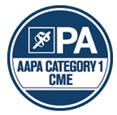
COURSE CREDITS & HOURS
AMA PRA Category 1 Credits™12 ACPE Credits
COURSE FEES
TARGET AUDIENCE
PROGRAM PURPOSE
Special emphasis will be placed on the scope of the problem of substance-related disorders (substance use, abuse, diversion), the efficacy of drugs used to treat substance use disorders, the impact of the increase in drug diversion (with a special focus on opioids), the consequences of substance use, abuse and addiction related to acute and chronic effects on health, crime, employment, and the strategies employed for substance use prevention.
Additional topics to be covered include, various theories of the causes of obesity and the extent it contributes to various disorders, the basic mechanism of action, common and/or severe adverse effects, and the pharmacokinetic parameters associated with the drugs used for the short- and long-term treatment of obesity. The desired outcomes include the ability to recommend specific pharmacotherapy for substance use disorders, and for short- and long-term treatment of obesity, the ability to list the most common adverse effects associated with all drugs discussed, the ability to compare and contrast the efficacy of drugs used to treat substance use disorders and obesity, the ability to discuss the reasons for the increase in use of diverted substances especially in young people, and the ability to describe the current theories on the etiology of addiction and obesity. The prevention and treatment of substance abuse and obesity should be a priority of all members of the health care team; these lectures will emphasis the interdisciplinary approaches to best accomplish this.
A series of Pulmonary diseases from the common COPD, Asthma and community acquired pneumonia to less common immunodeficiency will be presented. Immunodeficiency and Sarcoid are missed frequently and the participant will pick them up more. They will also learn about ethics which is often lacking in our interaction of the patients, their families and our colleagues.
Topics:
- Overview of substance use disorders (addiction) and diversion: epidemiology, etiology, diagnosis and pharmacological and pharmacokinetic properties of commonly abused substances - Part one
- Describe the scope of the problem of substance-related disorders (substance use, abuse, diversion)
- Overview of substance use disorders (addiction) and diversion: epidemiology, etiology, diagnosis and pharmacological and pharmacokinetic properties of commonly abused substances - Part two, and Consequences and Prevention of Substance Abuse and Addiction
- Distinguish the changes to diagnostic criteria between DSM-IV-TR to DSM-5 for substance-use disorders
- Pharmacotherapy for Substance Use Disorders - Ethanol, Nicotine, and Opioids
- Compare and contrast the efficacy of drugs used to treat substance use disorders
- Obesity and weight control including pharmacotherapy for both OTC and prescription drugs
- Compare and contrast the efficacy of drugs used for the short- and long-term treatment of obesity.
- Asthma
- Be up to date on new 2019 Guidelines including the treatment of Severe Asthma and uncontrolled Asthma
- Chronic Obstructive Lung Disease (COPD)
- Be up to date on the latest 2020 diagnosis and treatment of Chronic Obstructive Lung Disease
- Community acquired Pneumonia (CAP)
- Learn to diagnose and treat CAP and learn new guidelines which came out in October 2019. Who gets admitted or not
- Sarcoid
- Diagnose, learn complications and treat Sarcoid
- Immunodeficiency (ID)
- Diagnose and treat primary ID,Common Variable ID.
- Learn about the treatments and assess cases
- Ethics
- The participants will be presented cases and asked their opinion, then the cases will be discusssed .























































